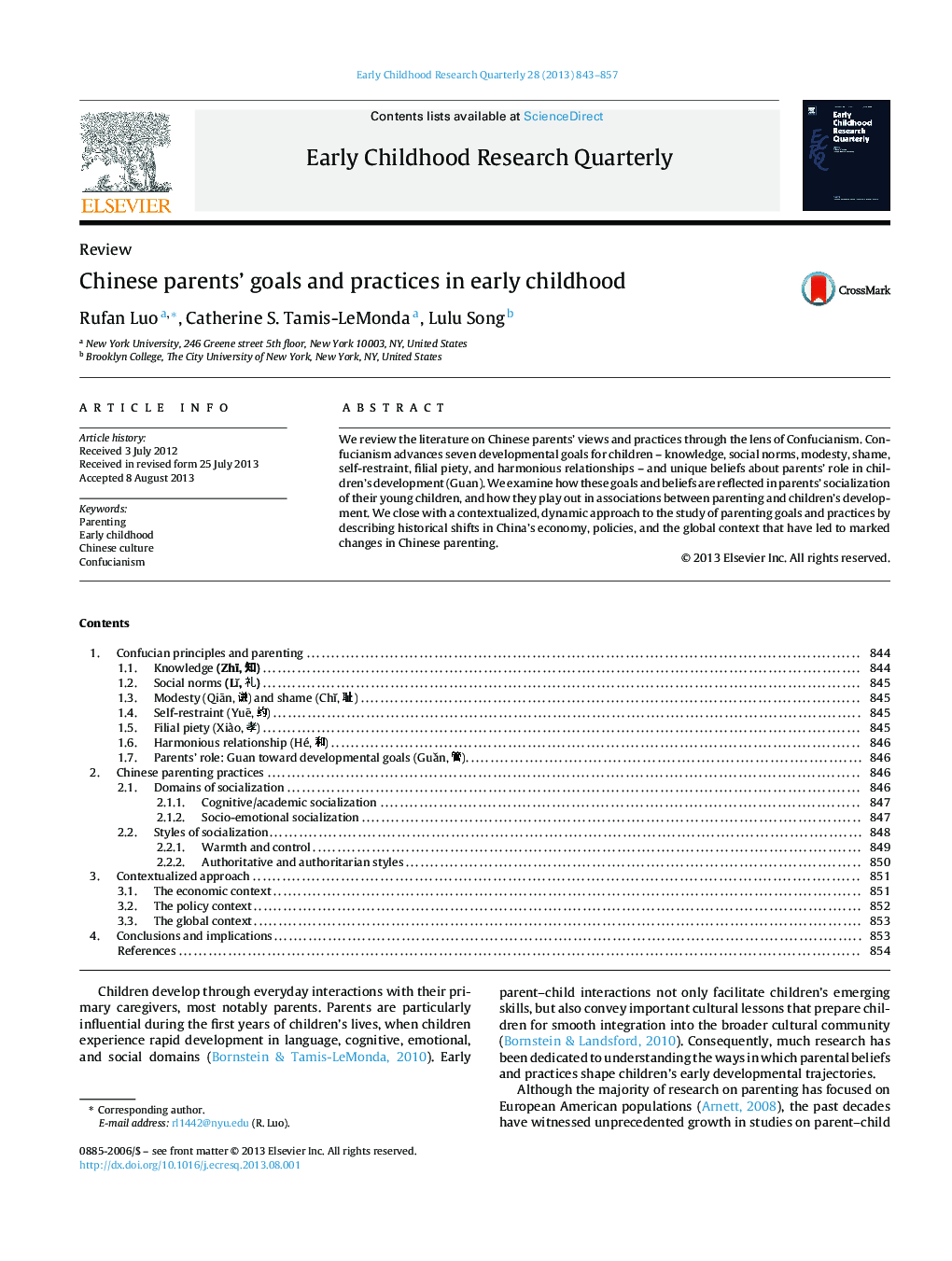| Article ID | Journal | Published Year | Pages | File Type |
|---|---|---|---|---|
| 353888 | Early Childhood Research Quarterly | 2013 | 15 Pages |
•Chinese parenting in early childhood reflects Confucian values.•These include knowledge, norms, modesty, shame, restraint, filial piety, and harmony.•The value of Guan emphasizes parents’ role in child development.•Together, these values are reflected in various aspects of parenting.•They also moderate associations between parenting and children's development.•Historical shifts in economy, policy, and global context that have led to marked changes in Chinese parenting.
We review the literature on Chinese parents’ views and practices through the lens of Confucianism. Confucianism advances seven developmental goals for children – knowledge, social norms, modesty, shame, self-restraint, filial piety, and harmonious relationships – and unique beliefs about parents’ role in children's development (Guan). We examine how these goals and beliefs are reflected in parents’ socialization of their young children, and how they play out in associations between parenting and children's development. We close with a contextualized, dynamic approach to the study of parenting goals and practices by describing historical shifts in China's economy, policies, and the global context that have led to marked changes in Chinese parenting.
